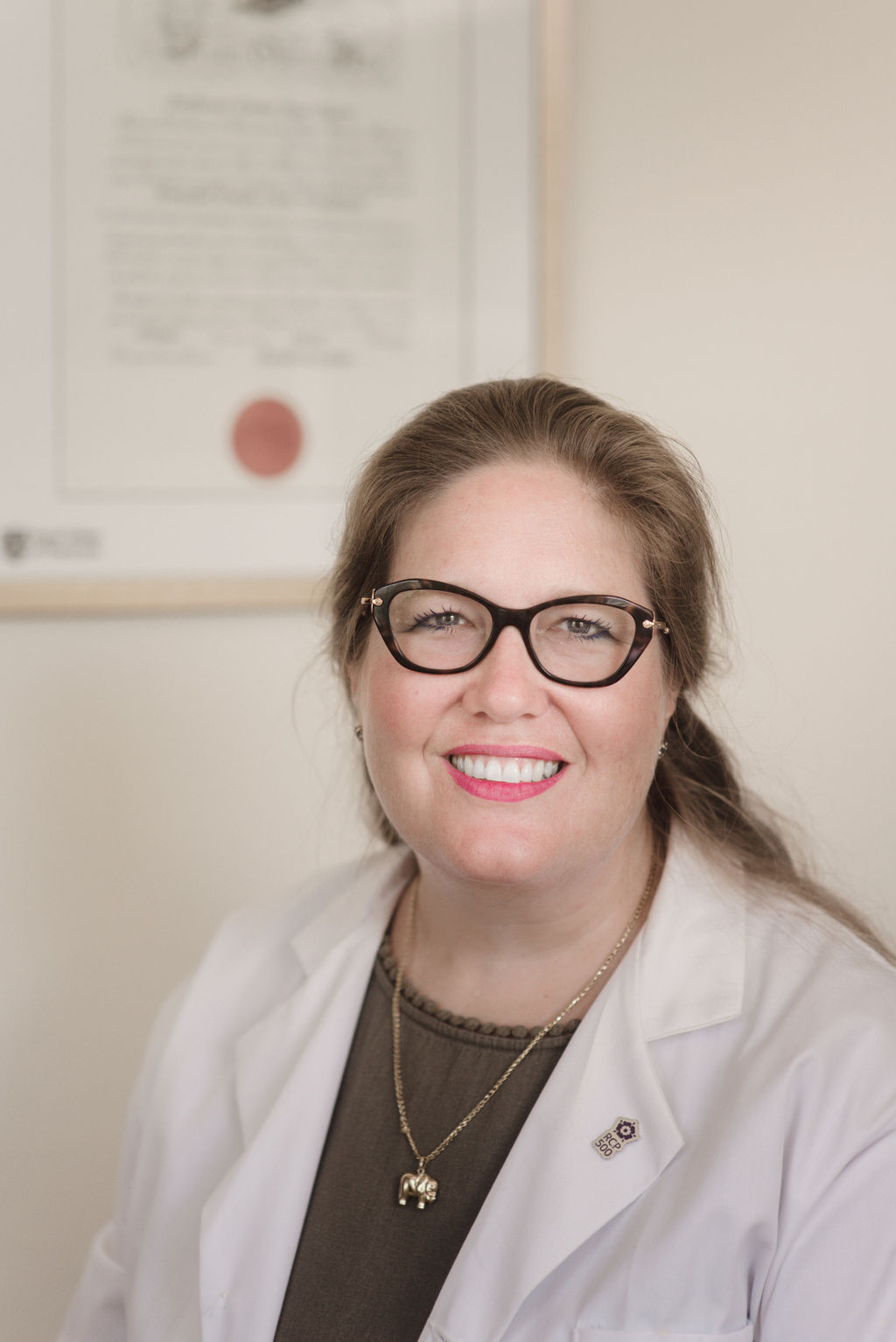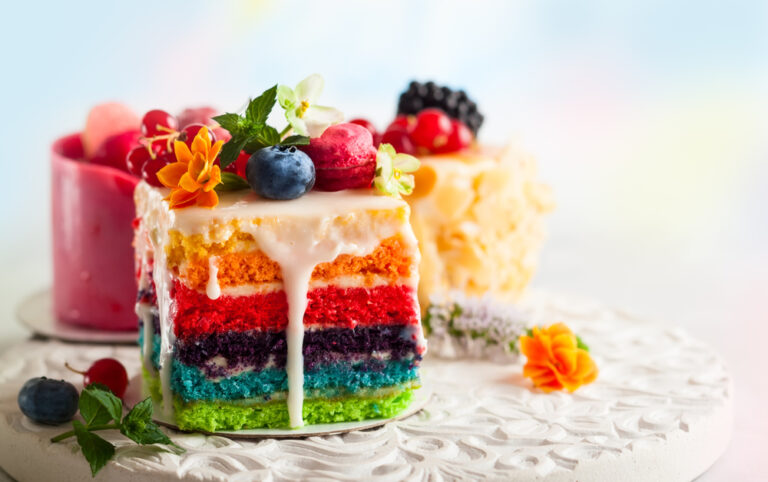Sweet Means Good To Eat, But Beware the Added Sugars
by ANNABEL COOPER
We’re told that sugar is bad for our health, but sweet foods taste delicious and sugar is added into so much of what we eat and drink on a daily basis, it’s hard to avoid.
Bermudian endocrinologist, Dr Annabel Fountain, specialises in internal medicine, diabetes, metabolism and endocrinology, which is the study of hormones. We asked her how sugar impacts our bodies, why it is so prevalent, and how we can make healthier choices.

“Sugar is safe in a small amount,” began Dr Fountain. “There’s a reason why foods are sweet. Berries that are sweet are safe to eat. That’s part of the evolution of why we will gravitate to something sweet, because we know we can eat it, rather than a red sour berry that’s not ripe or might be poisonous. We are safe eating sugar. It’s naturally occurring.
“The problem now,” she continued, “is it’s in absolutely everything. It’s added artificially. It’s in lots of processed food. It’s not the sugar on its own that’s the problem, it’s how it’s delivered in the body. If you eat sugar by the teaspoonful, it doesn’t have any other nutrients with it at all so it’s a flavouring and it tells our body that what we’re eating is safe.”
Too much sugar therefore, can damage our health, resulting in issues including obesity, type 2 diabetes and even liver failure.
The way to look at it, she said, is “if you have eight paracetamols a day, that’s fine, but if you have 15, it will kill your liver. Everything usually has a toxic level. The same thing with sugar, but the big problem is we don’t know where it is in our food. It’s very difficult to find foods that don’t have added sugar unless you refuse to buy anything in a packet.”
This is a worry because when the liver gets saturated with sugar it can lead to diseases more commonly associated with excessive alcohol, such as hepatitis and cirrhosis.
Too much sugar can also stop our body making enough insulin, the main hormone for managing blood sugar levels. The more sugar in your body, the more insulin it needs. The more insulin your body makes, the more overweight you get. Eventually, your pancreas tires and can’t make enough insulin. That’s when type 2 diabetes can develop.
“Insulin’s job is as a storage hormone,” she explained. “If we were hunter gatherers, walking all day, berry picking and then we had a feast and we ate it all and we just peed out all the sugar, we would have nothing left for the famine.
“Insulin converts every extra calorie we don’t need on that day into stored energy for later, and that’s fat. If you’ve got a few rolls around your tummy, that’s your insulin saving energy for the famine, except there is no famine, food is plentiful.”
According to the American Heart Association, men should have no more than nine teaspoons of added sugar per day, women no more than six teaspoons and children “less than six teaspoons”.
To put this in perspective, one 12oz can of coke contains over nine teaspoons of sugar. There is a teaspoon of sugar in every tablespoon of Heinz tomato ketchup and many breakfast cereals contain high amounts of sugar including 3 teaspoons per serving of Kellogg’s Froot Loops and just over two teaspoons per serving of Alpen Muesli.
If too much added sugar leads to health problems, why is so much added?
The answer is simple. Money.
“Sugar is a commodity and it’s a business,” said Dr Fountain. “Because it’s a commodity and because it’s making people rich, they’re putting it in absolutely everything.”
Some sugars, however, are better than others. “Sugars that are in foods naturally are healthier because you’re getting them with nutrients, the vitamins and minerals that come with those fruits and vegetables,” she explained. “The processed sugars like high fructose corn syrup are the worst kinds.”
She warned that food companies use “around 56 different names for sugar on their food labels,” so knowing how to recognise added sugar is important.
“Read the labels and you will be absolutely appalled at how much sugar is added into everything,” she said.
“Dextrose is a sugar, monosaccharides, disaccharides, those are sugars; and then the high fructose corn syrup. They say ‘cane sugar’ and you think ‘oh, it’s straight from the cane so it must be good sugar’. It’s still processed sugar.”
Dr Fountain warned against replacing sugar with artificial sweeteners such as aspartame and saccharin, because of potentially harmful side-effects, but she does recommend certain “sugar alcohols”, such as xylitol, erythritol and maltitol.
Xylitol and maltitol double up as laxatives, however, so be careful of too much, and xylitol is “extremely toxic to dogs.”
Her personal favourite is erythritol, known as ‘Swerve’. “It’s brilliant,” she said. “It’s completely cut for cut the same as sugar and doesn’t affect your blood glucose, doesn’t have any calories and doesn’t have negative effects.” She also recommended Stevia and monk fruit.
“You can get chocolate chips now made from monk fruit,” she said, adding, “there are a few chefs in Bermuda who will actually make you sugar free treats – cup cakes with butter cream made with monk fruit. Everything tastes absolutely perfect, but doesn’t have that big effect on your blood glucose.”
A problem with reducing the amount of added sugar in your diet, especially if you don’t have time to cook your food from scratch, is availability of healthy sugar-free options. They are out there, however, and supply and demand is a powerful mechanism.
“Be demanding!” said Dr Fountain. “If you go to a bar here, the only sugar free soda is diet coke. There are so many options for diet tonic water, but it’s never stocked.
“When I go into a coffee shop, I say ‘what sugar free syrups do you have?’ Not because I want a syrup, but I want them to hear there should be a demand.”

